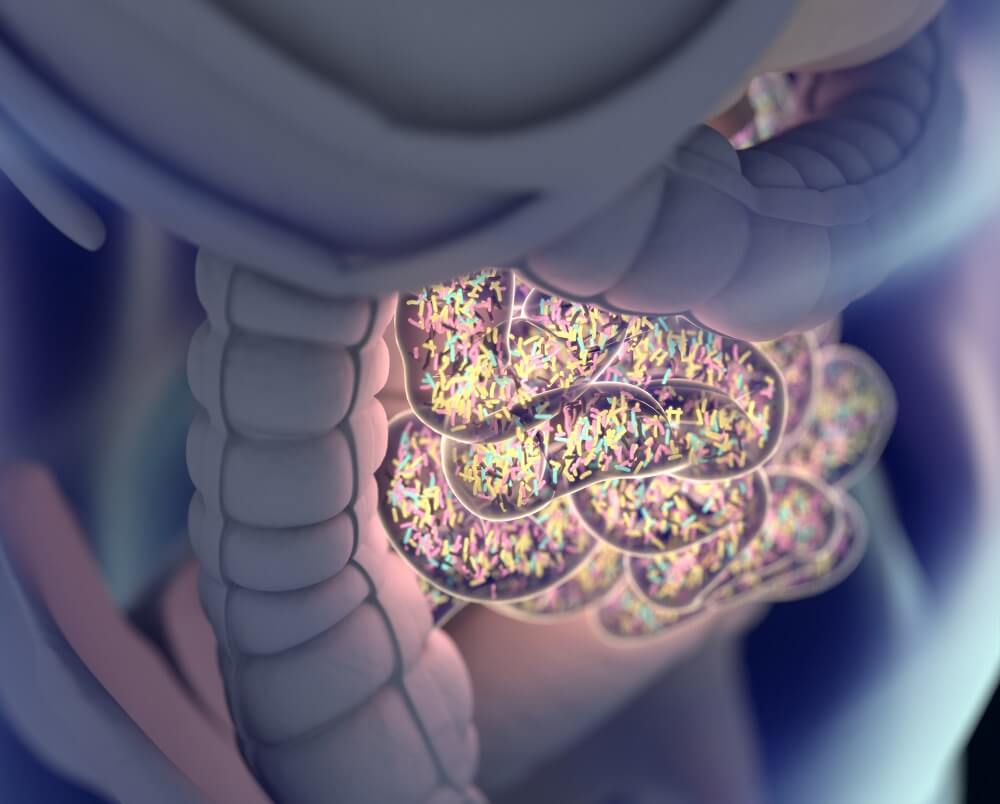
Hormones are the body's chemical messengers produced by the endocrine system that regulate every function from breathing to eating and reproducing. In certain cases, an individual's endocrine system will not function correctly, leading to a hormonal imbalance. When the hormones are out of whack, specifically for those weight-regulating hormones, it can make it harder to lose weight.
The link between hormones and weight-related medical conditions can be a confusing one. Often, hormonal imbalances are a result of hereditary medical conditions. Yet, at times, hormonal imbalances can result from poor health choices that lead to medical conditions—i.e., type 2 diabetes.
The Weight Regulating Hormones
There are several hormones that can lead to obesity or weight retention. These include leptin, ghrelin, insulin, cortisol, thyroid hormone, and sex hormones (estrogen/testosterone). Let's break them down a bit more.
Leptin
Leptin is predominantly made up of adipose tissue that is known for controlling hunger. It also seems to control how the body manages its store of body fat.
Ghrelin
Ghrelin is known as the hunger hormone and is produced by the stomach when you are hungry, telling your brain that you should eat.
Insulin
Insulin is a fat-storage hormone and chemical messenger that allows cells to absorb sugar from the blood. Insulin also assists in breaking down fats or proteins for energy.
Cortisol
Cortisol is a hormone produced by the adrenal gland when the body is under stress—both physical and emotional stress. Cortisol also helps your body become even more effective at producing glucose from proteins.
Thyroid
The thyroid hormone is responsible for regulating your metabolism, which we know as the rate our body burns calories for energy.
Sex
The most common sex hormones are estrogen and testosterone, but women also produce another hormone known as progesterone. All men and women have.
How our Weight is Affected When Hormones Are Off Balance
Now that we know more about these hormones, how can an imbalance affect our weight?
Leptin: Leptin is produced by fat cells. For overweight or obese patients who have excess fat in their body, there is an excess production of leptin. When your brain gets bombarded with leptin signals from too many fat cells, it shuts down; leptin levels keep rising, receptors stop functioning, your body doesn't get the leptin signal, and you don't feel full. You keep eating the wrong foods in an addictive pattern, and you keep gaining weight.
Ghrelin: Ghrelin levels are at their highest right before a meal when you are hungry and at their lowest after a meal when you are full. However, for overweight or obese individuals, ghrelin levels only fall slightly after eating a meal. Therefore, their brain doesn't receive a strong signal to tell the body that it is full and to stop eating. And when an individual has too much ghrelin in their body, they are likely to be overweight or obese.
Insulin: When your body becomes insulin-resistant, from either type 1 or type 2 diabetes, you have a hard time absorbing the extra blood glucose. This will result in the liver, converting that glucose to fat, and thus weight gain.
Cortisol: Cortisol helps your body produce glucose from proteins, so if there is an imbalance, this could lead to glucose dysregulation-aka weight gain. Similarly, when our cortisol levels are off-balance, our metabolism is lowered, and our thyroid function is impaired, resulting in weight gain. Also, high levels of cortisol are linked to depression, food addictions, and sugar cravings.
 Thyroid: When the thyroid hormone is underactive (hypothyroidism), the body is less efficient at burning calories for energy leading to weight gain, fluid retention, depression, and hair loss, among other symptoms.
Thyroid: When the thyroid hormone is underactive (hypothyroidism), the body is less efficient at burning calories for energy leading to weight gain, fluid retention, depression, and hair loss, among other symptoms.
Sex: The imbalance of the sex hormone is more common in women than men. Typically, we will see this with patients who have elevated testosterone levels and low estrogen levels, leading to polycystic ovarian syndrome (PCOS). On the contrary, some women who have elevated estrogen levels compared to the hormone progesterone will experience weight retention or weight gain.
How to Maintain Hormonal Balance
Often, when our hormones are out of whack, it is because of our lifestyle. To maintain order and peace inside your body, make sure you are doing so outside as well.
- Eat a diet low in sugar and processed foods.
- Eliminate your alcohol consumption
- Engage in regular physical activity
- Learn to manage your stress levels
Hormonal Balance Through Bariatric Surgery
If you are still struggling to balance your hormones and lose weight, we recommend you look into bariatric surgery. Weight loss surgery changes hormones in positive ways that can lead to weight loss you may not have otherwise done on your own through voluntary efforts.
- Leptin: As mentioned above, leptin is a hormone that controls hunger and helps the body manage body fat. After bariatric surgery, the levels of leptin have been proven to increase. This allows your body a better ability to signal that you are full and to stop eating, thus sustained weight loss long term.
- Ghrelin: This hunger hormone is produced in the stomach. Bariatric surgery removes a large portion of the stomach, limiting the number of cells that can produce ghrelin and, ultimately, increase your hunger.
- Insulin: After bariatric surgery, especially the gastric bypass and duodenal switch, a molecule that helps the body use glucose is produced; it is called GLUT-1. With the presence of GLUT-1 in the body, patients' have an easier time converting glucose to energy instead of fat.
- Cortisol: Studies looking at the effect of bariatric surgery on cortisol levels prove that patients who undergo weight loss procedures have lower stress levels. As mentioned above, we know that higher levels of stress can lead to hormonal dysregulation, impaired thyroid function, and emotional eating. Therefore, lower levels of cortisol in the body result in weight loss and maintenance over time.
- Thyroid: Bariatric surgery has been shown to improve a patient's thyroid function and reduce thyroid medications, resulting in a more active metabolic function. We know that the faster your thyroid is, the more calories your body burns for energy.
- Sex: Sex hormones are heavily influenced by obesity and fat distribution. The heavier someone is, especially women, the more free testosterone is produced, causing weight retention. In men, obesity is associated with low testosterone. With weight loss after bariatric surgery, patients experience a balance in their hormonal levels that can result in the maintenance of their weight.
Maintaining a healthy weight is a complex process that requires many different hormones and organs to work together to maintain balance in the body. Bariatric surgery is a useful tool to aid in weight loss and hormonal balances for optimal health and bodily functions.











